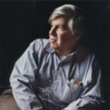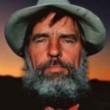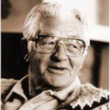Coming into the country
(Book)
Copies
| Location | Call Number | Status | Due Date |
|---|---|---|---|
| Aurora Hills - Adult Nonfiction | 979.8 MCPHE | Checked Out | June 3, 2025 |
Description
Coming into the Country is an unforgettable account of Alaska and Alaskans. It is a rich tapestry of vivid characters, observed landscapes, and descriptive narrative, in three principal segments that deal, respectively, with a total wilderness, with urban Alaska, and with life in the remoteness of the bush. Readers of McPhee's earlier books will not be unprepared for his surprising shifts of scene and ordering of events, brilliantly combined into an organic whole. In the course of this volume we are made acquainted with the lore and techniques of placer mining, the habits and legends of the barren-ground grizzly, the outlook of a young Athapaskan chief, and tales of the fortitude of settlers-ordinary people compelled by extraordinary dreams. Coming into the Country unites a vast region of America with one of America's notable literary craftsmen, singularly qualified to do justice to the scale and grandeur of the design.
More Details
Notes
Subjects
Excerpt
Similar Titles From NoveList
Similar Authors From NoveList
Published Reviews
Kirkus Book Review
Alaska: the last frontier, a land of insulated stalwarts, climatic exigencies, and nineteen streams named Salmon. McPhee came into the country as a capital dilemma was being resolved--the search for a site apart from staid, remote Juneau and sleazy, neon Anchorage--a few years after the Native Claims Settlement Act had enriched the Indian population, indirectly enabling Alyeska to cable home. His deftly stratified report, written with a strong sense of place, includes a river trip with assorted ""ecomorphs,"" short flights with the factious capital search committee, and a nonpareil section on town folk and people of the bush. Townspeople come from Pennsylvania or Texas or South Dakota, repudiating less worthy lifestyles. In some ways small-town life resembles suburban styles in the Lower Forty-eight: although produce suffers from jet lag and peanut butter jars often contain gold dust, a local storekeeper is nicknamed Taiwan (because of his merchandise), neighbors squabble incessantly, alcoholism and unemployment are chronic. Those in the bush are a prickly, competitive lot, intent on a life ""beyond community""; many live out childhood dreams of self-reliance; a few admit to serial frictions in pre-Alaska days. They grow or catch most of their food, make their own clothes, and tacitly vie for Most Independent. Anchorage is indistinguishable from Albuquerque (""You can smell the greed in the air""); Sierra Club types are less popular than grizzlies; and lately a synonym for native is stockholder. More significant than the petty rivalries and personal histories are resident conflicts over rights--development, conservation, individual enterprise--which are reminiscent of the rancher/farmer tensions of pioneer days and will ultimately determine the future of the landscape. As in his other books, McPhee's seemingly effortless work is a polished composition which replaces stereotypes with cross-hatched figures and allows the odd detail, the offhand remark to enlarge the scene (systematically probed in Lost Frontier, p. 1023). Flecked with irony, written with rhythm and style--and more than the sum of its parts. Copyright ©Kirkus Reviews, used with permission.
Reviews from GoodReads
Citations
McPhee, J. (1977). Coming into the country (First edition.). Farrar, Straus and Giroux.
Chicago / Turabian - Author Date Citation, 17th Edition (style guide)McPhee, John, 1931-. 1977. Coming Into the Country. New York: Farrar, Straus and Giroux.
Chicago / Turabian - Humanities (Notes and Bibliography) Citation, 17th Edition (style guide)McPhee, John, 1931-. Coming Into the Country New York: Farrar, Straus and Giroux, 1977.
Harvard Citation (style guide)McPhee, J. (1977). Coming into the country. First edn. New York: Farrar, Straus and Giroux.
MLA Citation, 9th Edition (style guide)McPhee, John. Coming Into the Country First edition., Farrar, Straus and Giroux, 1977.
































